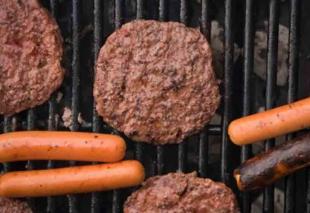

World's first test tube burger could herald change

The world's first test tube burger cost approximately US $384,000, and was created by Professor Mark Post who estimates it will be between 10-20 years before commercial production could begin.
The 142gms beef burger was grown in a laboratory from 20,000 small strands of meat from cow stem cells, and was fried by Cornwall-based chef Richard McGeown.
US-based food author Josh Schonwald and Austrian food researcher Hanni Ruetzler tasted the burger at a live presentation in London. Salt, breadcrumbs and egg powder were used for added taste, with red beet juice and saffron added to give it colour.
Co-founder of Google Sergey Brin also contributed to this venture by injecting $330,100 into the research project, and said if the project succeeds it can be transformative for the world.
Meat & Livestock Australia regional manager Middle East North Africa Jamie Ferguson told HotelierMiddleEast.com that free-range and grass-fed beef and lamb are naturally excellent sources of nutrients and minerals, such as iron and zinc, that the body needs.
He highlighted the value of red meat in a healthy diet and said: "Red meat such as Australian beef and lamb are recommended three to four times a week for iron and zinc in the Australian Dietary Guidelines, with New Infant Feeding Guidelines recommending iron-rich foods such as Australian beef and lamb as first foods for babies from six months for growth and development."
Thie can help prevent iron and zinc deficiencies in growing toddlers, with nutrient-rich Australian beef and lamb providing growing children with 10 essential nutrients they need for health.
Ferguson added: "Higher red meat protein diets are recommended for recovery in athletes or active people, and for the above reasons I don’t believe that naturally raised beef and lamb will ever be fully replaced."
According to Post - from the University of Maastricht University in the Netherlands - the artificial meat could be commercially produced within the next two decades.
The website created by the university dedicated to this project says livestock farming is responsible for approximately 18% of all greenhouse gas emissions, which is more than all global transport
A report by the United Nations Environment Programme also said "reduced meat production would ease both pressures on the remaining natural environment (i.e. less new land clearance for livestock) and on atmospheric emissions of CO2, CH4 and N2O" - this implies an artificially-created burger would help cut on greenhouse gas emissions caused due to livestock rearing.
Read the reactions of local burger outlets in the next issue of Caterer Middle East.